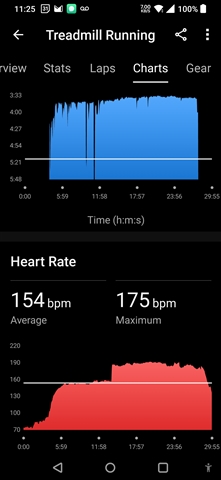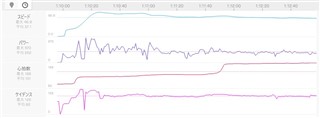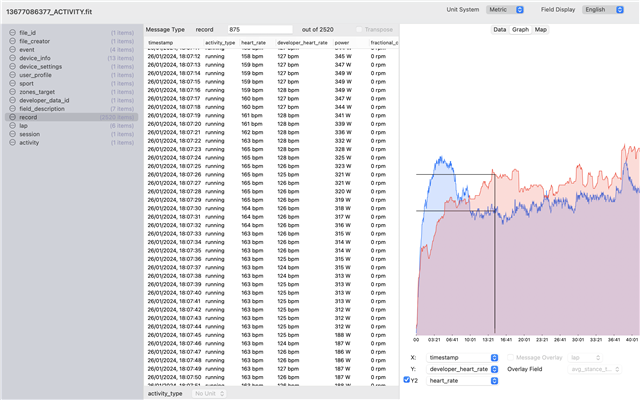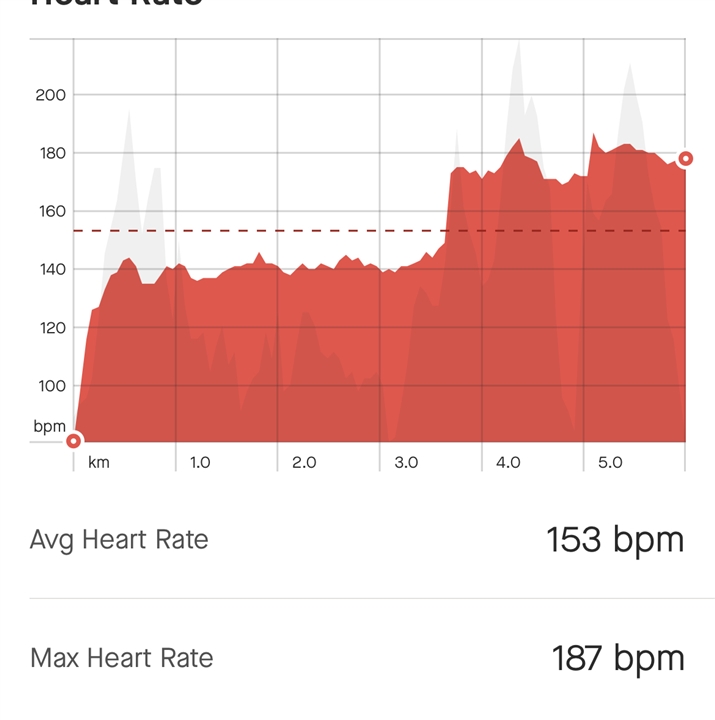I did a treadmill run today, slowly increasing the speed (after a four-minute walk warmup) by one mph per minute out to 16 minutes, then kept it the same.
As the screenshot shows, at about 12 minutes, my HR jumped, in a straight line, up from 156 to 185 and thereafter ranging from 185 to 191 over the rest of the run till I ended by walking where it tapered off. The average and max numbers shown in the screenshot above the graph are not original; I edited them after the workout because the ones originally displayed were fake.
I should emphasize that I did nothing to change the heart rate at the 12-minute mark.
My max HR is around175, so these numbers are not only suspect just looking at the graph but physiologically as well. Unfortunately, they throw off all the metrics derived from the workout, including Training Load, impact on Body Battery, max HR, Lactate Threshold and Recovery, all kind of important metrics for monitoring fitness.
If it were a one-time event, I could disregard it. Unfortunately, I see this every couple of weeks or so; occasionally, it happens in reverse, showing an absurdly low HR over a workout.






